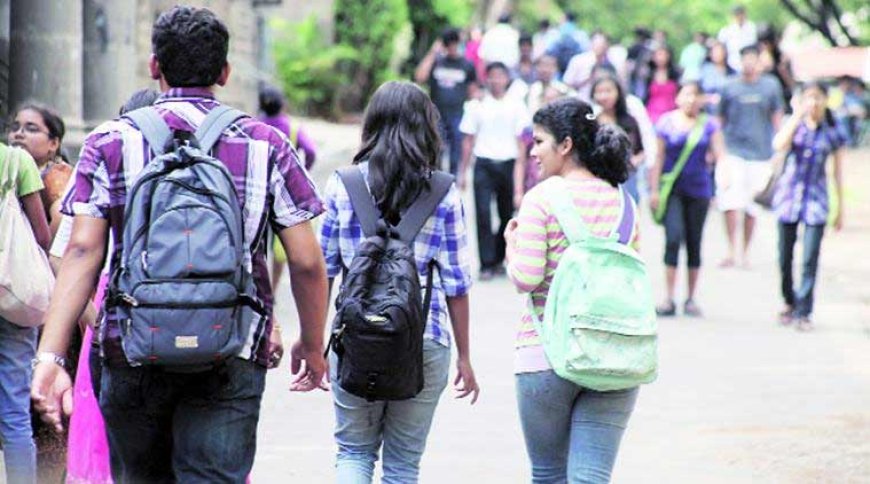Academic Freedom Under Fire: How Political Influence Is Reshaping India’s Education System
Universities and educational institutions across India are facing growing political interference, sparking debates over academic autonomy, freedom of expression, and ideological imposition.

New Delhi, July 10 — India’s education system is experiencing an unprecedented crisis. From changes in leadership at prestigious universities to curriculum revisions that appear ideologically motivated, a growing number of scholars and civil society voices are raising alarm over what they describe as increasing political control over educational institutions.
Across the country, students, professors, and administrators are speaking out against a trend they say threatens not just academic freedom, but India’s democratic and intellectual foundations.
The Rise of Centralized Oversight
Recent years have seen a spike in centralized oversight and administrative interventions in university affairs. High-profile resignations from institutions like Jawaharlal Nehru University (JNU), Delhi University (DU), and Hyderabad Central University (HCU) have drawn attention to what many critics believe is an effort to align educational policies and institutions with the ruling party’s ideological vision.
Appointment of vice-chancellors and key administrative figures has increasingly become a political battleground. Instead of academic credentials and peer recognition, perceived ideological loyalty appears to be playing a more decisive role in such selections.
Curriculum Revisions Stir Controversy
Curriculum changes are another flashpoint. In several states, textbooks have been modified to either downplay India’s pluralistic history or to promote a majoritarian cultural narrative. References to Mughal rulers, caste-based discrimination, and key independence figures like Nehru have been reduced or removed entirely from NCERT books—a move that has drawn sharp criticism from academics and historians alike.
While some officials argue that these revisions are meant to “decolonize” the syllabus, detractors claim it is an attempt to rewrite history through a narrow ideological lens.
Autonomy of Institutions Under Threat
India’s higher education bodies, such as the University Grants Commission (UGC) and National Education Policy (NEP) implementation committees, are being increasingly viewed as instruments of state influence. Policy decisions are often introduced with little academic consultation, creating frustration among educators.
One recent example is the introduction of the Four-Year Undergraduate Program (FYUP) in many institutions. Though it aims to align Indian education with global standards, its rushed rollout and lack of dialogue with stakeholders have sparked protests from student unions and faculty bodies.
The Chilling Effect on Academic Speech
More concerning is the growing climate of fear on campuses. Faculty members report being discouraged from participating in panels or research deemed “controversial.” Several public intellectuals have seen their talks cancelled due to political pressure, while students have faced disciplinary action for organizing discussions on issues like minority rights, farmers’ protests, or gender justice.
This chilling effect has fostered a culture where self-censorship is becoming the norm, not the exception.
Student Protests and Civil Pushback
Despite this, resistance is growing. Student unions, teachers’ associations, and civil society groups are staging protests and campaigns demanding a rollback of ideological overreach. In cities like Delhi, Hyderabad, and Kolkata, thousands have taken to the streets calling for academic independence and transparency in educational governance.
The All India Students' Association (AISA) and Federation of Central Universities Teachers’ Associations (FEDCUTA) have both issued statements decrying what they term as “systematic erosion of academic institutions.”
Global Concerns and International Reactions
International academia is also taking note. Scholars from institutions like Harvard, Oxford, and the University of Chicago have expressed concern about the decline in institutional autonomy and freedom of inquiry in India. Open letters and petitions by global faculty members have warned that such political interference could undermine the global standing of Indian universities and hamper research collaborations.
A Struggle for the Soul of Education
The battle unfolding is not merely bureaucratic—it is ideological. At stake is whether universities remain centers of critical thinking and intellectual debate, or become extensions of political messaging. Education has historically played a central role in shaping the Indian republic; today, it is caught in a struggle over identity, memory, and the future of democracy itself.
In the words of a professor from Delhi University, speaking anonymously:
“We are not just losing academic freedom—we are watching the slow dismantling of what a university is supposed to be.”
Looking Ahead
As India prepares for its next general elections and navigates a complex global landscape, the health of its educational institutions will play a critical role in determining national strength. For a democracy to thrive, its universities must remain spaces of dissent, diversity, and discovery.
The question now is whether those in power will listen—or whether India’s academic ecosystem will be reengineered into ideological conformity.











